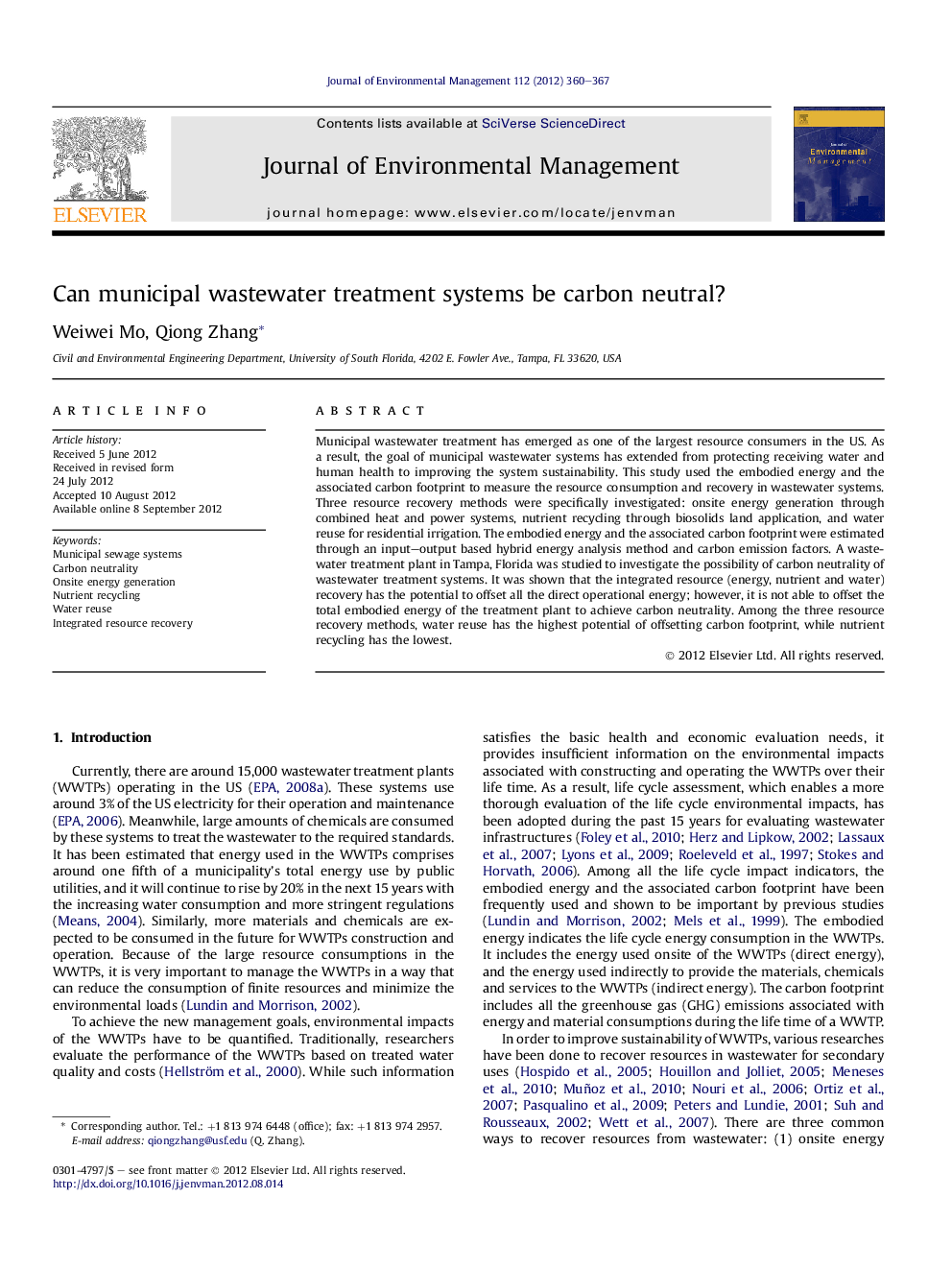| Article ID | Journal | Published Year | Pages | File Type |
|---|---|---|---|---|
| 1056440 | Journal of Environmental Management | 2012 | 8 Pages |
Municipal wastewater treatment has emerged as one of the largest resource consumers in the US. As a result, the goal of municipal wastewater systems has extended from protecting receiving water and human health to improving the system sustainability. This study used the embodied energy and the associated carbon footprint to measure the resource consumption and recovery in wastewater systems. Three resource recovery methods were specifically investigated: onsite energy generation through combined heat and power systems, nutrient recycling through biosolids land application, and water reuse for residential irrigation. The embodied energy and the associated carbon footprint were estimated through an input–output based hybrid energy analysis method and carbon emission factors. A wastewater treatment plant in Tampa, Florida was studied to investigate the possibility of carbon neutrality of wastewater treatment systems. It was shown that the integrated resource (energy, nutrient and water) recovery has the potential to offset all the direct operational energy; however, it is not able to offset the total embodied energy of the treatment plant to achieve carbon neutrality. Among the three resource recovery methods, water reuse has the highest potential of offsetting carbon footprint, while nutrient recycling has the lowest.
► We investigated the possibility of carbon neutrality of wastewater systems. ► Integrated resource recovery can offset direct operational energy. ► Integrated resource recovery cannot offset total carbon footprint. ► Water reuse has a high potential for offsetting greenhouse gas emissions.
